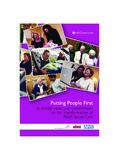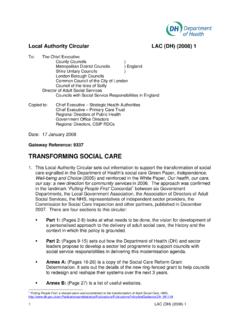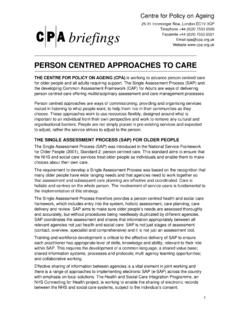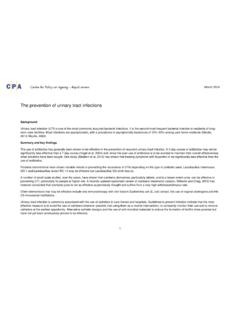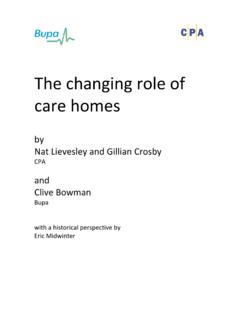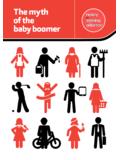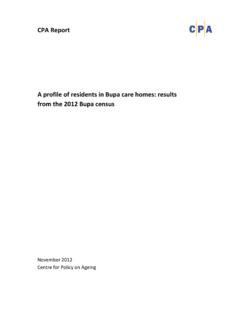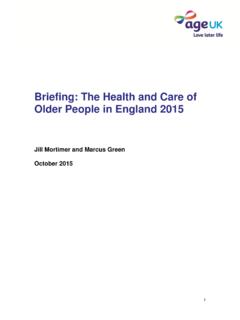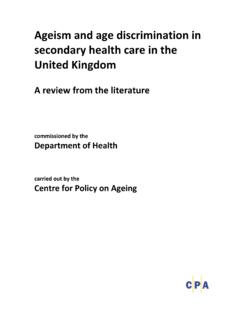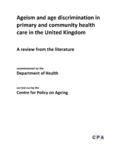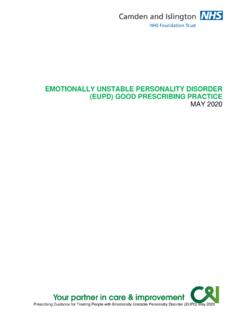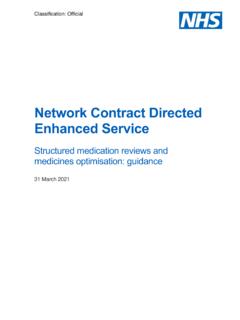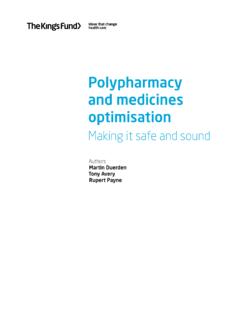Transcription of MANAGING AND ADMINISTERING MEDICATION IN CARE …
1 MANAGING AND ADMINISTERING MEDICATION IN CARE HOMES FOR OLDER PEOPLE A report for the project: Working together to develop practical solutions: an integrated approach to MEDICATION in care homes . Centre for Policy on AgeingOctober 2011 Revised April 2012 MANAGING and ADMINISTERING MEDICATION in care homes for older people Contents Page Key messages 1 1 Introduction 4 2 The extent of the problem 1 3 Sources of MEDICATION administration error 7 4 Monitoring MEDICATION 11 5 The use of technology and other aids 11 6 Regulations, standards, guidance and codes of practice 13 7 Making a difference 21 8 Concluding comments 25 9 References and further readings 27 1 Key messages 1.
2 Older people in care homes are among the most vulnerable members of our society, reliant on care home staff for many of their everyday needs. A combination of complex medical conditions may lead to the need to take multiple medications with care home residents taking 7 8 medications on average. This polypharmacy in turn increases the risk of MEDICATION error. MEDICATION errors may occur as a result of a failure in prescribing, dispensing, ADMINISTERING or monitoring MEDICATION . 2. This report focuses on the ADMINISTERING of MEDICATION in care homes.
3 It looks at the prevalence of error, common causes and how these can be addressed, through simple, low cost changes in practice, appropriate training and more substantive changes in care home systems. 3. Respect for the older resident and their dignity and rights as an individual should remain at the heart of the MEDICATION process with MEDICATION being administered on behalf of the resident rather than to the resident. 4. The principle of the 5 Rs of correct MEDICATION administration in care homes remains sound, right resident, right MEDICATION and right dose by the right route at the right time.
4 In addition, the welfare, rights and voice of the older person receiving MEDICATION have to remain at the heart of the process. 5. The care homes use of medicines (CHUMS) study observed that errors occur on of MEDICATION administration events. That would mean that a care home resident being administered MEDICATION three times a day would be certain to receive at least one MEDICATION administration error every month. 6. The most common types of MEDICATION administration error are incorrect crushing of MEDICATION , not supervising the intake of MEDICATION particularly for residents with dementia, incorrect timing, omissions and wrong dose.
5 7. Errors are more common in the morning than later in the day. 8. There is conflicting evidence of whether MEDICATION administration errors are more likely in residential or nursing home care, and there is no obvious relationship between MEDICATION errors and type of care home ownership, public, private or voluntary. 9. Inhalers and liquid medications are much more likely to give rise to MEDICATION errors than tablets but it is unclear whether monitored dosage systems (MDS) are inherently safer. Antibiotics may be particularly prone to error with a number of doses being missed over the course of treatment.
6 10. A commonly cited cause for MEDICATION errors is interruptions during the preparation and administration of drugs, with interruptions taking up around 11% of MEDICATION administration time. Interruptions are usually by other care home staff. Another commonly cited cause is a breakdown in communication about MEDICATION between GP, hospital, pharmacy and care home 2 during a period of transition, when the resident first enters a care home or returns to the care home after a period in hospital. 11. Residents should be involved in the MEDICATION process.
7 A mentally alert resident, or fully informed relative or friend may be the final check against MEDICATION error in the care home, but many residents are passive in the MEDICATION process saying I just take what I m given . 12. The ADMINISTERING of medications in care home is currently (October 2011) covered by regulation 13 of the Health and Social care Act 2008 (Regulated Activities) Regulations 2010 and compliance is monitored by the Care Quality Commission. 13. Standards and guidance on the handling and ADMINISTERING of MEDICATION in care homes are available from a number of sources.
8 The Royal Pharmaceutical Society (of Great Britain) [2007] and the Nursing and Midwifery Council [2008] have published standards and guidance on MEDICATION in care homes. The Royal Pharmaceutical Society [2011] has also published guidance on good practice when patients/residents transfer between care providers. Many primary care trusts have published guidance and templates of policies and procedures for care home to adopt, some of which are listed in this report, and the Social Care Association [2008] has outlined twelve principles of good practice that equally apply to care homes.
9 14. Simple, low cost options that may reduce the chance of administration error Distribute fresh water to all residents before the MEDICATION round Avoid interruptions by the carer ADMINISTERING MEDICATION wearing a brightly coloured sleeveless jacket indicating that MEDICATION is being dispensed and requesting they should not be disturbed With the agreement of the prescriber, administer MEDICATION that does not need to be administered in the morning, later in the day Ensure that procedures are in place to record the use of PRN (as required) MEDICATION on the MEDICATION administration record (MAR) chart so that stock levels are maintained Where this is not already the case, request that medicine / MEDICATION administration record (MAR)
10 Charts be supplied in a printed form to avoid incorrect transcribing and difficult to read handwriting Request that the pharmacist supplies a copy of the original MEDICATION information leaflet (indications, contra indications and method of administration) when a MEDICATION is first supplied to an individual resident as part of a monitored dosage system 15. Other suggested changes. Giving MEDICATION to the wrong resident is rare but serious when it occurs. One study found that, over a three month period, over one half of residents were exposed to an attempt to give MEDICATION to the wrong resident.
